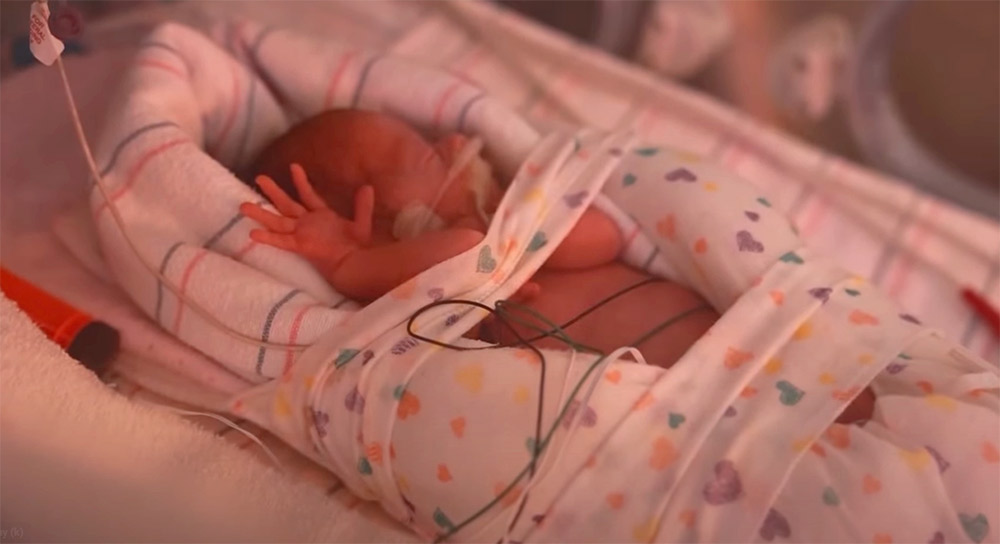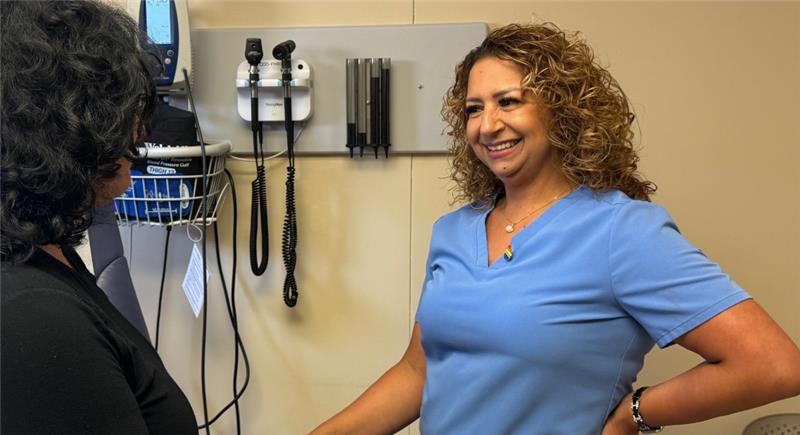Integrating parents as active members of their premature baby’s care team actually improves tiny babies’ weight gain and reduces infection risks, the neonatal intensive care unit (NICU) at Community Regional Medical Center found in a clinical study.
The study, recently published in BMC Pediatrics, a national peer-reviewed research medical journal, examined how different approaches to care impacts preterm infant health. Community Regional’s 84-bed Level III NICU delivers some of the highest rates of premature babies at very low birth rates (weighing less than 3lbs 5oz) in the state of California.
As the first study of its kind in the United States, the goal was to compare two types of care models and how they affect the health of infants born prematurely:
- Family-centered care is a more traditional approach where the care team collaborates with the patient and family by honoring their perspectives and cultures, as well as communicating openly about baby’s treatment plan
- Family-integrated care is based on family-centered care, but is more structured in fully integrating parents into their baby’s care team and holding them accountable to specific tasks so when they go home with their baby, they are confident in their primary caregiver role
“Family-centered care and family-integrated care are very similar, philosophically,” said Diana Cormier-Farrah, a clinical nurse specialist at Community Regional who co-authored and contributed to the study. “They both put the family at the center of the care planning. The major difference is, family-centered care, although it’s been a long-held belief in the neonatal world, there’s no structure to it. There’s a vast difference in how it’s interpreted and translated into actual care.”
Integrating parents as members of their baby’s care team
More than 250 infants (born at 33 weeks or less) and their parents were enrolled from three different types of NICUs to receive usual family-centered care or mobile-enhanced family integrated care (mFICare). The NICUs in the study provided care for infants from ethnically diverse urban and rural communities.The mFICare approach to care is more hands-on than family-centered care. This well-structured, yet flexible care model requires parents to be part of the infant’s care team, not just be bystanders. They are guided by NICU staff and mentored by graduate NICU parents to play more of an active role in their infant’s treatment plan by participating in rounding and reporting back on specific tasks they were assigned, or journaling observations. Being part of the care planning process helps parents feel more confident when they eventually go home and become the primary caregivers.
“We were able to show that when you provide specific opportunities to allow parents to engage in their baby’s care, you’re going to have improved outcomes for the babies,” said Cormier-Farrah.
The study included the use of the We3health™ mobile app that helped bridge the gap for families participating in the mFICare model, allowing them to stay engaged with education, classes and journaling of their experiences, even when they could not make it to the hospital.
“What was important about that app is the involvement of [NICU] graduate parents in the development, so there was a lot of input from parents who have been in the NICU who had gone home and later said, ‘I wish that when I was in the NICU someone taught me about X, Y, Z,’” said Cormier-Farrah.
Parent engagement and education is something Community Regional has always encouraged in the NICU, and it was among the first 100 hospitals nationally to receive the perinatal care certification awarded by The Joint Commission in 2018. This year, Community Regional was recognized as one of only a few hospitals in California to receive the advanced certification in perinatal care.
How family-integrated care makes a difference
The study began in 2018 and concluded in 2020, finding that infants in the usual Family Centered Care group had almost three times higher odds of acquiring a hospital-related infection during their NICU stay than infants in the mFICare group. Although the study was cut short by the pandemic, it still yielded positive results.“What we did find with our results is that parents who took part in classes, and parents who were present at the bedside to participate in clinical rounding, the babies of those parents had lower rates of infection and greater weight gain,” said Cormier-Farrah.
See the full study to learn more.
What’s next for mobile-enhanced family-integrated care?
The NICU team at Community Regional was published again in BMC Pediatrics in August 2023 for additional research on how miFICare affects maternal mental health and parent well-being after their baby is discharged. Although mothers in both study groups had similar mental health experiences after discharge, mothers with high levels of stress during their babies’ NICU stay who were part of the mFICare group had fewer depression symptoms and PTSD related to their NICU experiences.





